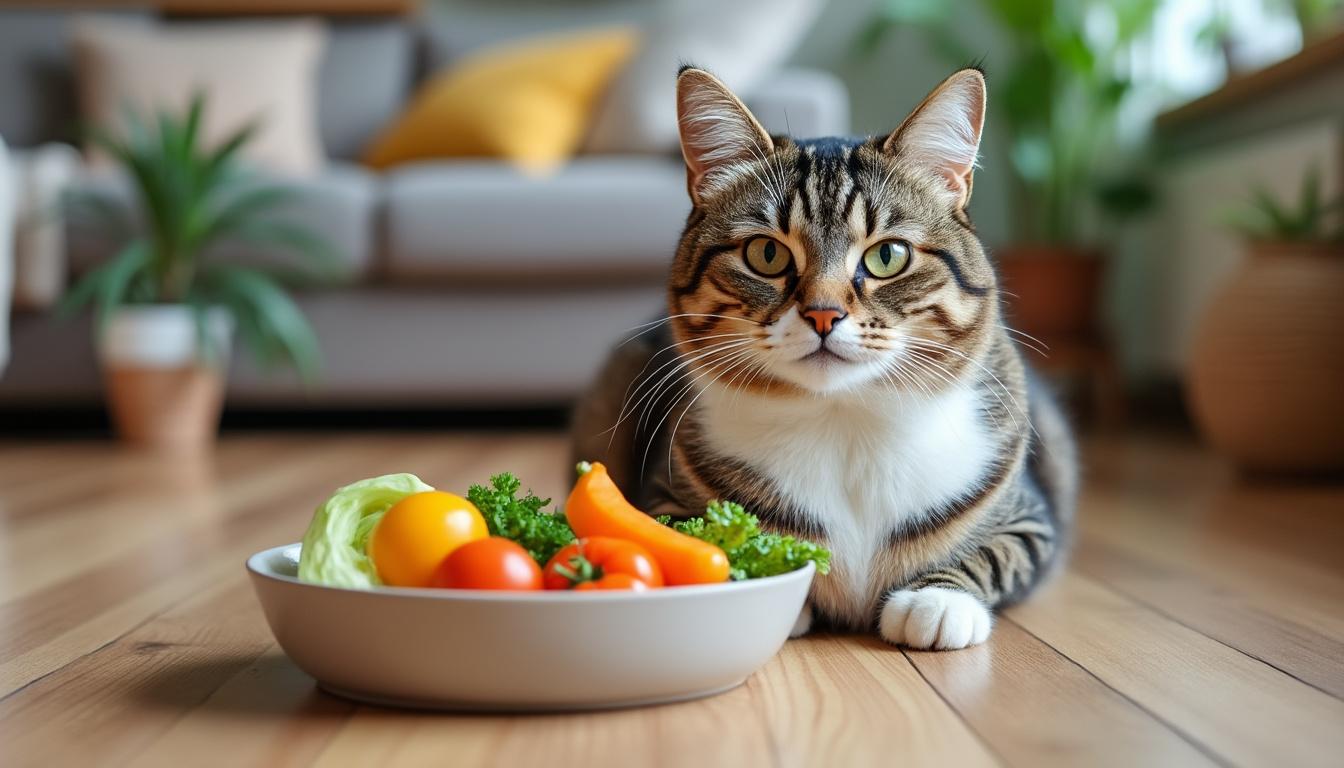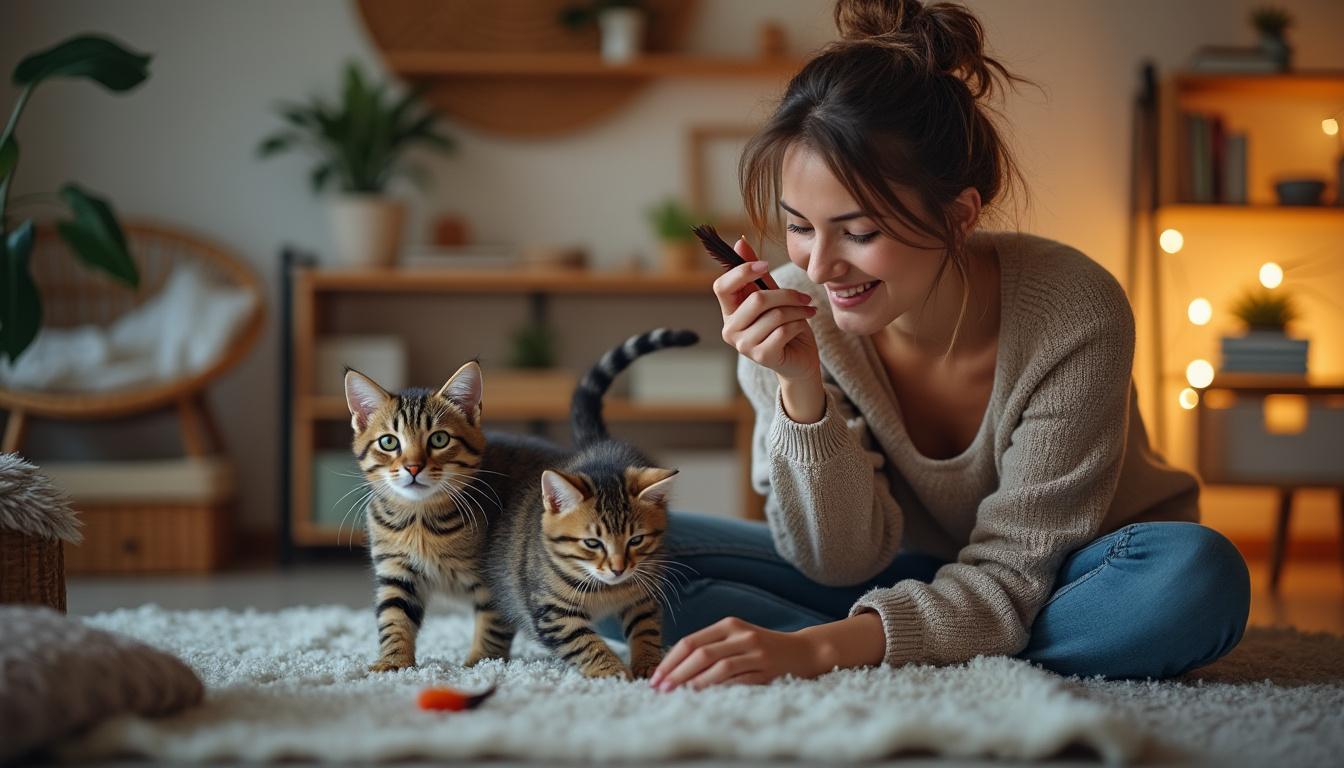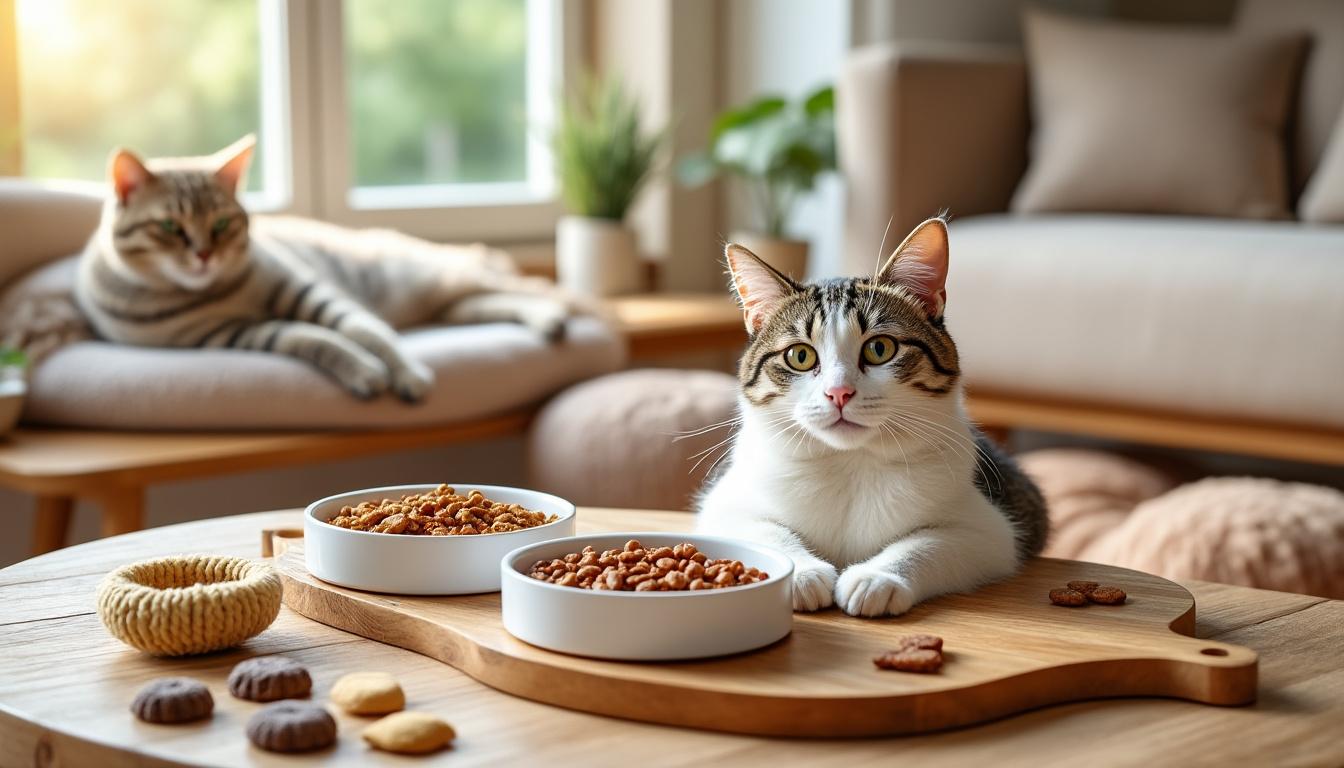When it comes to keeping our indoor cats healthy and happy, diet plays a crucial role. Indoor cats typically have different nutritional needs compared to their outdoor counterparts. With obesity being a prevalent concern among indoor felines due to sedentary lifestyles, it’s vital for pet owners to select the right food that addresses these issues while providing balanced nutrition. In this article, we’ll dive deep into various dietary options and recommendations tailored specifically for indoor cats.
In the quest for the best diet for indoor cats, several factors must be considered, including the cat’s age, health status, and unique needs. Here, we’ll explore some expert-approved food brands and formulations that prioritize weight control, hairball management, and overall health.
This guide aims to illuminate the best dietary choices for indoor cats, ensuring that they receive all necessary nutrients without excess calories. Plus, we’ll touch upon the latest trends in pet nutrition that can help support a cat’s long-term health.
- Different nutritional needs for indoor vs outdoor cats
- Importance of weight management
- Specific health issues prevented by proper diet
- Understanding cat food labels and ingredients
Understanding Indoor Cat Nutritional Needs
Indoor cats have specific nutritional requirements due to their lower levels of physical activity compared to outdoor cats. They require a diet that is rich in protein to support muscle maintenance and essential vitamins and minerals for overall health. Since indoor cats often face issues related to weight gain and hairballs, their diet must be carefully formulated to keep these problems at bay.
First and foremost, a high-protein diet is essential for indoor cats. Cats are obligate carnivores, meaning that their bodies are designed to thrive on animal-based proteins. This means that high-quality protein sources such as chicken, turkey, and fish should be the focal point of their diet.
Common Health Issues Indoor Cats May Face
Indoor cats are prone to a range of health issues, most notably obesity, which can lead to diabetes, joint problems, and heart disease. Here are some common health concerns and how the right diet can mitigate them:
- Obesity: Offers balanced nutrition with controlled calorie intake.
- Hairballs: Foods that include natural fiber to promote healthy digestion can help reduce hairball formation.
- Urinary tract health: Formulas with balanced minerals support healthy urinary function.
Essential Nutrients for Indoor Cats
An ideal cat food should include the following essential nutrients:
- Protein: A minimum of 30-40% of the diet.
- Fats: Provide energy and support skin and coat health.
- Fiber: Important for digestive health and reducing hairballs.
- Vitamins and minerals: Essential for overall health, including Vitamin A for vision and taurine for heart health.

Leading Brands for Indoor Cat Diet
With an abundance of options on the market, navigating through cat food brands can be overwhelming. However, several brands have gained attention for their specially formulated diets tailored for indoor cats. Here’s an overview of some of the best options available:
| Brand | Key Benefits | Notable Product |
|---|---|---|
| Iams | Weight control, hairball care | Iams Proactive Health Indoor Weight Control |
| Purina Pro Plan | Balanced nutrition, supports immune health | Purina Pro Plan Indoor Advantage |
| Royal Canin | Tailored nutrition for indoor cats | Royal Canin Feline Health Nutrition Indoor |
| Hill’s Science Diet | Easy digestion, hairball control | Hill’s Science Diet Indoor Adult |
| Blue Buffalo | Natural ingredients, no artificial additives | Blue Buffalo Wilderness Indoor |
Each of these brands offers various formulas designed for the unique needs of indoor cats. For example, Iams Proactive Health has a weight control formula that is specifically designed to help indoor cats maintain a healthy weight and prevent hairballs. Meanwhile, Purina Pro Plan features a blend of nutrients specifically for indoor cats to support overall health.
Feeding Guidelines and Portion Control
Following the right feeding guidelines is essential to keep indoor cats from becoming overweight. Here are some key points to consider when determining your cat’s portion sizes:
- Read serving suggestions: Every cat food will have different guidelines based on calorie density.
- Adjust for activity level: If your cat is less active, you may need to reduce their food intake.
- Monitor weight: Regularly check your cat’s weight and adjust portions as necessary.
- Combine wet and dry food: Offering both can help provide hydration and nutrition.
Wet food is particularly beneficial for indoor cats, as it can help increase hydration. Cats that solely eat dry food may not drink enough water, resulting in digestive issues. A mix of wet food can also enhance palatability, making mealtime more exciting.
Signs Your Cat May Be Overweight
Keep an eye out for these common signs of obesity in your cat:
- Difficulty grooming their fur
- Inactivity or reluctance to play
- Difficulty jumping or climbing
- Visible fat around the abdomen
If you notice any of these signs in your cat, it’s a good idea to consult with your veterinarian for tailored dietary recommendations.

Latest Trends in Indoor Cat Nutrition
The world of pet nutrition is always evolving. Here are some trends that are shaping the diet options available for indoor cats:
- Grain-free diets: Many cat owners are opting for grain-free options to improve digestibility.
- High protein formulas: Increasing awareness about the benefits of protein for overall cat health.
- Customized diets: More brands are offering personalized food plans based on the cat’s specific needs.
- Sustainability: Brands using eco-friendly ingredients and packaging are gaining popularity.
These trends reflect a growing awareness among pet owners regarding nutrition. Making informed choices about what we feed our cats can have a profound impact on their health and well-being.
Frequently Asked Questions
What is the best food for indoor cats?
IAMS Proactive Health Adult Indoor is a great choice for weight management and hairball care.
How does Purina Pro Plan help indoor cats?
Purina Pro Plan provides balanced nutrition to support immunity and overall health for indoor cats.
Is wet food necessary for indoor cats?
While not necessary, wet food helps with hydration and can make eating more enjoyable for your cat.
Can I feed my indoor cat homemade food?
Yes, as long as it meets their nutritional needs. Consult a veterinarian for the best recipes.
How can I recognize if my indoor cat is overweight?
Signs include difficulty grooming, inactivity, and visible fat around the abdomen.

